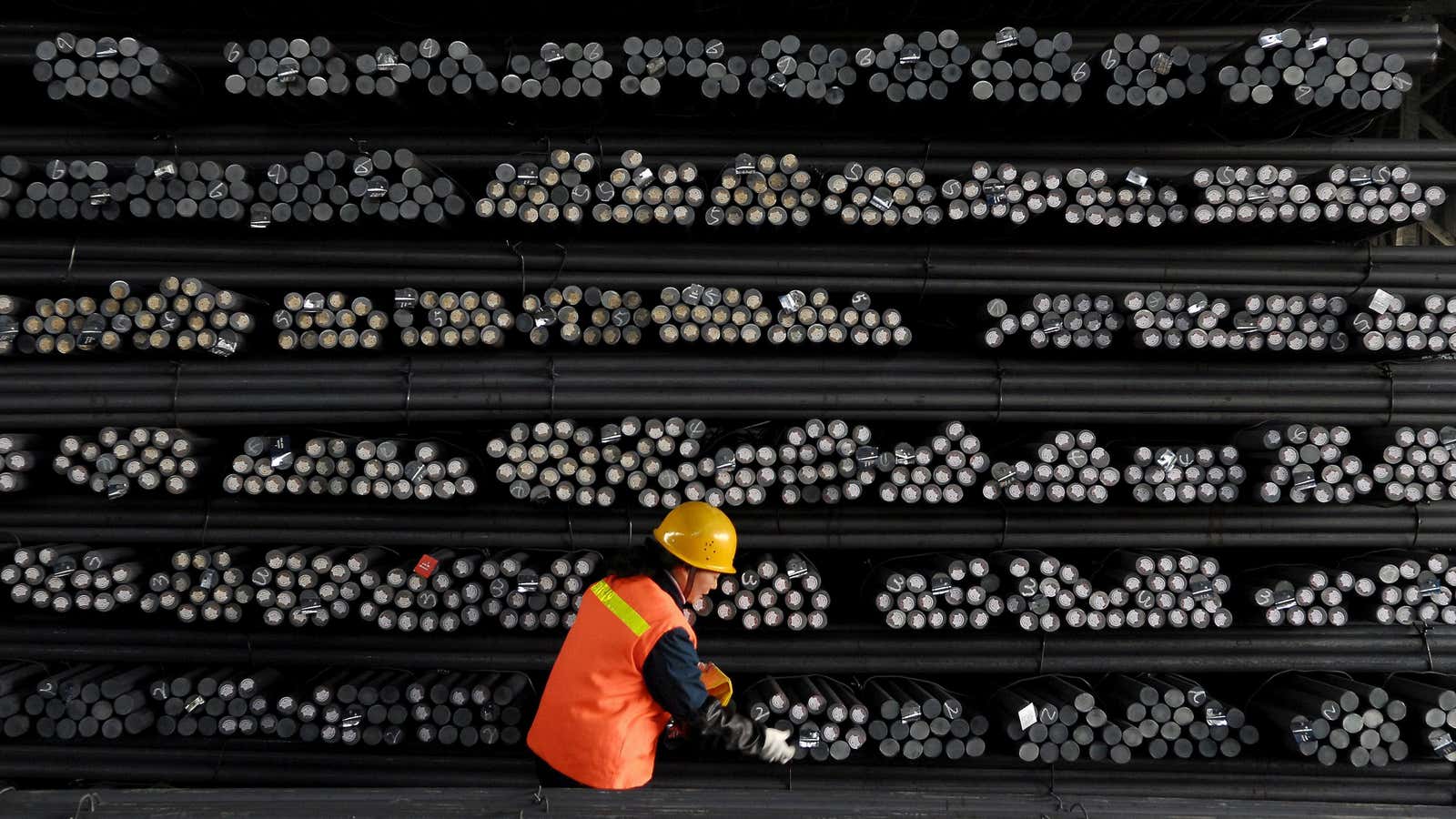China loomed large in the US senate’s confirmation hearing today of Wilbur Ross for commerce secretary. The private equity, bankruptcy, and steel magnate quickly named trade policy with China as one of the areas he’d seek to change.
Ross was sharply critical of Beijing, calling China the “most-protectionist” of large countries. “They talk much more about free trade then they actually practice,” he said. Like many of president-elect Donald Trump’s cabinet picks and advisors, Ross indicated he would move toward a more confrontational relationship with China, rather than emphasizing partnership over common US-China goals like climate change and fighting terrorism.
“My mindset would be that of the world’s largest customer dealing with his vendors,” he said, referring to the countries with whom the US has trade deficits. “While you need to treat vendors with respect, they must also treat you, as their largest customer, both with respect and more importantly by playing by the rules of the road,” he said. “To the degree they don’t, there must be enforcement.”
Here’s how US trade policy with China could change if Ross’s nomination is confirmed.
Rising steel tariffs from the US…
China has turned the global steel industry upside down in just 15 years, thanks to low cost production that has flooded world markets and led to thousands of layoffs in other parts of the world.
The key to forcing China to reduce its overcapacity is tariffs, Ross said.
China “has one billion tons, half the world’s capacity” of steel production, Ross said, but only needs 700 million tons of steel for domestic use. “They are producing 800 million tons and putting 100 million tons out in the world markets, often at dumping prices,” he said. He pledged to pay “very careful attention to more tariff activity,” in order to discourage dumping in the steel and aluminum industry.
Tariffs for iron and steel imports to the US have been vastly lower than China in the past, although the US has recently upped taxes on some steel products.
“Punishing people for dumping is essential,” Ross said. “If you don’t really punish them, you’re never going to modify their behavior.”
…but don’t expect 35%
On the campaign trail, Trump threatened to impose tariffs of 35% or more goods that were imported into the country. He also falsely accused China of manipulating its currency to be weak (for much of the past 12 months, Beijing has been trying to prop its currency up). Chinese state media responded that Beijing could close its massive domestic market to US companies, and refuse to buy everything from iPhones to US soybeans.
Today, Ross suggested that Trump’s threats were nothing more than a negotiating tactic. “I think the president has done a wonderful job preconditioning other countries with whom we’ll be negotiating that change is coming,” he said, noting the Mexican peso and Canadian dollar had dropped significantly. “He has done some of the work already that we need to do.”
Reciprocity and simultaneity
While Chinese companies, many of them state-backed, have been snapping up US assets, US companies are prohibited from making similar deals in China, pointed out the US senators grilling Ross.
Reciprocity of trade agreements is important, Ross agreed, but he didn’t go into detail. Foreign investment in China is declining, as Beijing puts up more barriers to overseas companies trying to do business there.
Ross did add, however, that “simultaneity” is another factor that’s sorely missing in US trade agreements.
Often, he said, the US agrees to upfront concessions in a trade deal, while its trade partner agrees to make them later, “and sometimes later doesn’t come.” He said he plans to examine trade deals to see what has and has not worked, and hopes to contribute to a “model trade agreement” that the US government could use from now on, with set principles.
The best tool in any negotiation is “I can’t change this, it is official policy,” he said.
